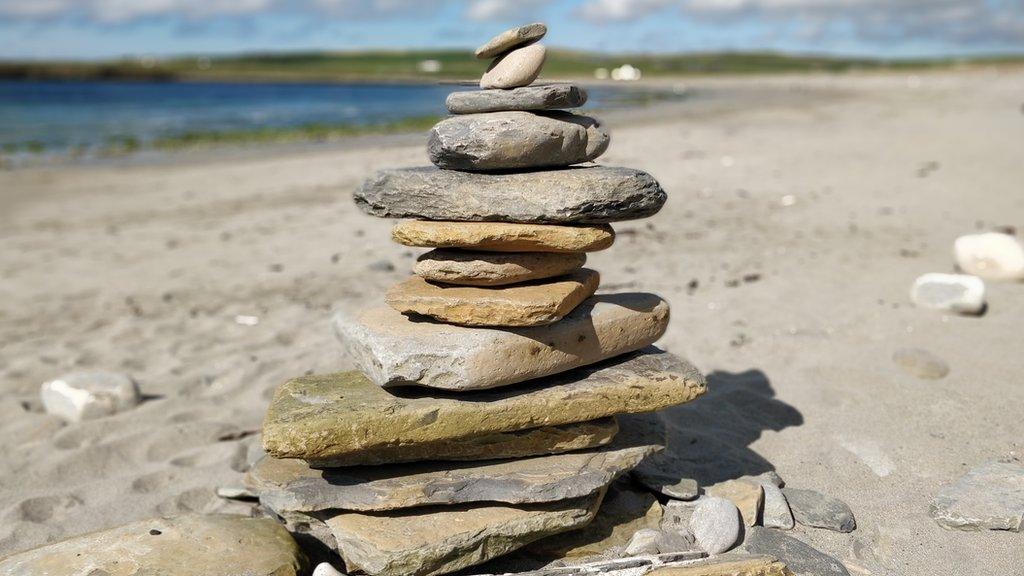Beaches 'spoiled': Should rock stacking be banned?
- Published

Making a pretty pile of rocks on a beach seems like a nice way to spend a sunny afternoon.
But there is some backlash against the art of stone stacking.
Humans have been making their mark through rock cairns and monuments for centuries.
Now critics say building new ones spoils pristine environments and could be a threat to wildlife. Supporters say the health benefits far outweigh any damage.
'Everybody's doing it'
John Hourston, founder of the Blue Planet Society, believes it's a worrying trend.
"People are doing it with no education of the environment so they don't know what site they're in - whether the site has any wildlife significance or historic significance," he says.
Allow Twitter content?
This article contains content provided by Twitter. We ask for your permission before anything is loaded, as they may be using cookies and other technologies. You may want to read and before accepting. To view this content choose âaccept and continueâ.
"Add to that the historic significance of cairns in Scotland, used for landmarks and to show safe ways. You're now confusing that with personal statements that really mean nothing."
"Everything has its place. I think creativity is great and I think getting into the environment is great, but with the growth of social media it's reached a point where everybody's doing it."
Skaill beach near Skara Brae in Orkney has dozens of rock stacks
James Craig Page is a stone-stacking artist and also organises the European stone-stacking championships in Dunbar.
The event attracts competitors from across the UK.
Health benefits
For James, the benefits to mental health far outweigh any harm that is being done to the environment.
"We've done workshops with schools and have found that children who have trouble focusing in the classroom absolutely take to the stone balancing," he says.
James Craig Page believes in the meditative qualities of balancing stones
"A lot of parents and teachers alike have said they are absolutely flabbergasted at these children spending more than 30 seconds focused on anything."
John Hourston thinks the key message is that people should be aware of the impact they're having.
"The first rule of the environment is leave no trace," he said. "If we educated people to understand that philosophy I think then people would have second thoughts about making a personal statement with a rock stack."
- Published21 April 2018